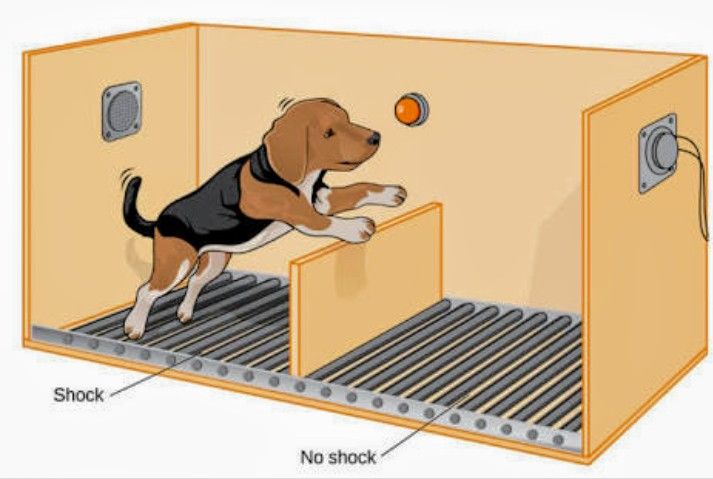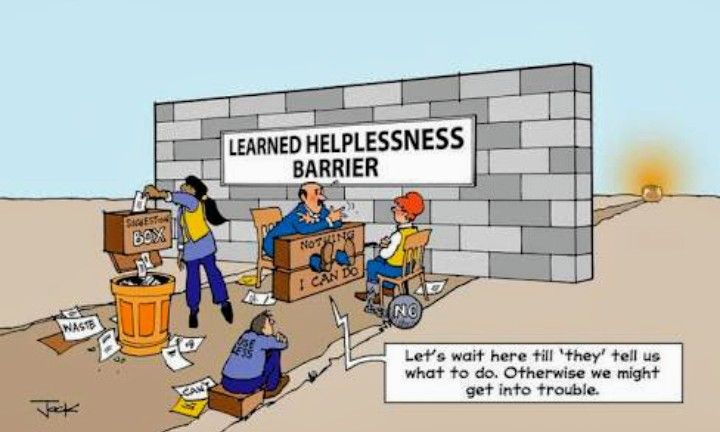Learned Helplessness
May 24, 2019 • 36 views
In the mid 1960s, a young psychologist Martin Seligman proposed the concept of learned helplessness, a condition that resulted from the perception that we have no control over any situation.
He first observed this incident in a laboratory experiments on dogs. In the experiment the dogs were put into a large box that contained two compartments, which were divided by a low wall. A mild shock was administered in one floor of the compartment and in order to escape the shock the dogs had to jump other side of the compartment. To Seligman's surprise, the dogs stayed in the same compartment, whimpering and made no to attempt to escape.

Seligman believed that the feelings of learned helplessness are developed in childhood, particularly during infancy and early childhood. As infants, we begin life in a helpless state, where we constantly depend others. As infants grow, they are better able to control their environment. For example, if an infant cries, the parents and caregiver will satisfy the infant's need. As we grow, we are able to master more skills that bring greater possibilities for control or failure. According to Seligman, a child's interaction with the environment will determine their sense of helplessness or control.
If the parent is insensitive towards the infant's response, they will not be able to satisfy the infant's needs. If the infant learns that a particular response doesn't work, they may generalize this idea, believing that none of their responses will work. This leads them to the idea that they have no control over their life.
Learned helplessness can also develop during later stages of childhood. If a child has harsh school environment, living in poverty or is exposed to negative life experiences, they will believe that they have no control over anything. In schools, those students who are treated as less intelligent or favourable by teachers and peer, may develop learned helplessness.

Learned Helplessness and Depression
Learned helplessness has also been associated with depression, since both are accompanied by the feeling of being unable to control life events. Those who are severely depressed believe that they are helpless and thus, do not try doing anything because they believe that nothing will have a favorable outcome for them.
Most of us experience feelings of helplessness from time to time when we face any failures. However, most people recover after a while but some don't. These people may generalize their failures to other areas of life, which can damage their sense of self- worth. Overtime, these people may become helpless and depressed in all areas of life and will see little to no point in striving.
Seligman has now focused his research on a related idea known as learned optimism and he has developed programs to teach optimism to children and adults, thus, helping them make a positive impact to their homes and workplace.
